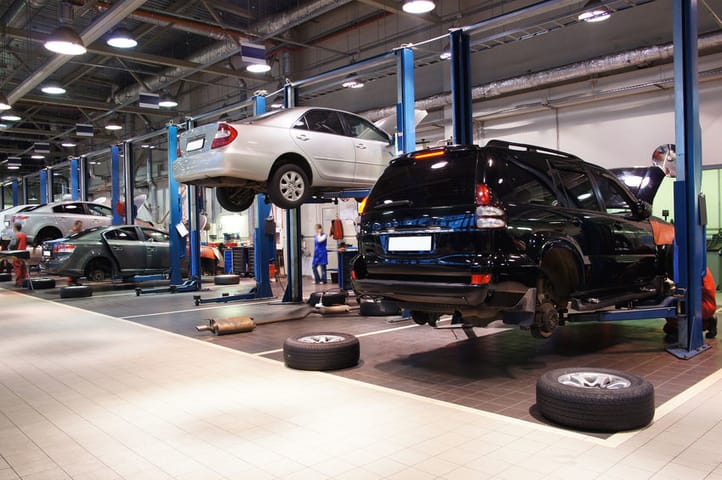All Categories
Featured
Your cars and truck is an important part of your day-to-day life, and taking excellent treatment of it makes sure that it serves you accurately for years to come. While modern vehicles are made to be resilient, neglecting appropriate upkeep can bring about unnecessary breakdowns and pricey repair work. Right here's just how you can keep your vehicle running longer and in peak condition.
- Stick To Regular Upkeep. The structure of a resilient automobile is normal maintenance. Follow your manufacturer's suggested upkeep routine, which can usually be discovered in your vehicle's owner's manual. Normal jobs like oil modifications, tire rotations, and brake checks prevent deterioration and keep your auto executing efficiently.
Overlooking oil changes is among the quickest means to harm your engine. Clean oil makes certain appropriate lubrication and prevents overheating. Depending on your vehicle and driving habits, oil changes are normally needed every 3,000 to 5,000 miles or as defined by the supplier.
- Examine and Renew Fluids. Your vehicle depends on a number of fluids to run efficiently. These include engine oil, transmission fluid, coolant, brake fluid, and power guiding fluid. Low or dirty fluids can result in engine overheating, sliding equipments, and brake failure.
Make it a routine to inspect fluid degrees consistently. If you notice a considerable decrease in fluid degrees, it might show a leakage that requires instant focus. Keeping liquids tidy and at the appropriate levels ensures your cars and truck runs successfully and prevents pricey fixings.
- Keep an Eye on Your Tires. Tire maintenance is critical for both safety and security and efficiency. Incorrectly inflated tires can minimize gas efficiency, create uneven wear, and boost the risk of blowouts. Inspect your tire pressure month-to-month and ensure it matches the maker's recommendations.
Turning your tires every 5,000 to 7,500 miles advertises also put on and expands their lifespan. Furthermore, check your tires for any kind of signs of damages, such as cuts, bulges, or reduced walk depth, and change them when necessary.
- Change Worn Components promptly. Overlooking damaged parts can bring about larger issues later on. Stopping working to replace a used timing belt can result in engine failure. Similarly, worn brake pads can harm blades, causing pricey repair services.
Be aggressive about replacing components such as spark plugs, filters, and belts based on the supplier's standards. Using high-grade replacement parts ensures better performance and longevity.
- Exercise Gentle Driving. The way you drive dramatically influences the lifespan of your vehicle. Aggressive driving routines, such as rapid acceleration, abrupt braking, and hard cornering, placed additional anxiety on the engine, brakes, and tires.
Rather, embrace smooth driving strategies. Increase gradually, preserve a stable speed, and brake gently whenever possible. This decreases deterioration on your auto's elements and enhances fuel effectiveness.

- Secure Your Vehicle's Outside. Keeping your automobile tidy isn't practically appearances-- it has to do with preventing damages. Dirt, roadway salt, and grime can cause rust and rust, specifically in the undercarriage. Regular cleaning, especially throughout winter season or after driving on salted roadways, is important.
Waxing your cars and truck every few months provides a protective layer versus environmental damages. Furthermore, park your vehicle in a garage or use a vehicle cover to shield it from severe weather condition and UV rays, which can discolor the paint and damages the inside.
- Do Not Neglect Indication. Dashboard warning lights are your cars and truck's way of telling you something requires interest. Whether it's the check engine light, low oil stress, or tire pressure caution, dealing with these informs without delay can stop small issues from ending up being significant repairs.
If you see uncommon sounds, resonances, or modifications in your car's efficiency, don't ignore them. A specialist mechanic can identify and deal with the issue before it escalates.
- Shop Your Vehicle Properly. If you're not using your cars and truck for a prolonged duration, correct storage is vital. Keep your cars and truck in an awesome, completely dry area to secure it from climate damages. Make use of a battery tender to maintain the battery cost and add a fuel stabilizer to protect against the gas from degrading.

Starting the cars and truck periodically or taking it for a brief drive can maintain all systems in working order and stop parts from taking up.
Conclusion: Consistency Is Key. Maintaining your cars and truck running much longer does not need complex measures-- just consistency and interest to detail. Regular upkeep, gentle driving routines, and addressing problems immediately can make all the distinction. Treat your cars and truck with care, and it will compensate you with reliability, far better efficiency, and years of reputable solution. Bear in mind, a properly maintained auto isn't just an automobile-- it's comfort on every trip.
Latest Posts
Explore Best Car Repair Solutions at Montclare Auto Repair – Reliable Repairs Await
Learn Why Chicago Drivers Select Montclare Auto Repair for Reliable Service and Significant Savings
Secure Your Home with Quality Residential Roof
More
Latest Posts
Explore Best Car Repair Solutions at Montclare Auto Repair – Reliable Repairs Await
Learn Why Chicago Drivers Select Montclare Auto Repair for Reliable Service and Significant Savings
Secure Your Home with Quality Residential Roof